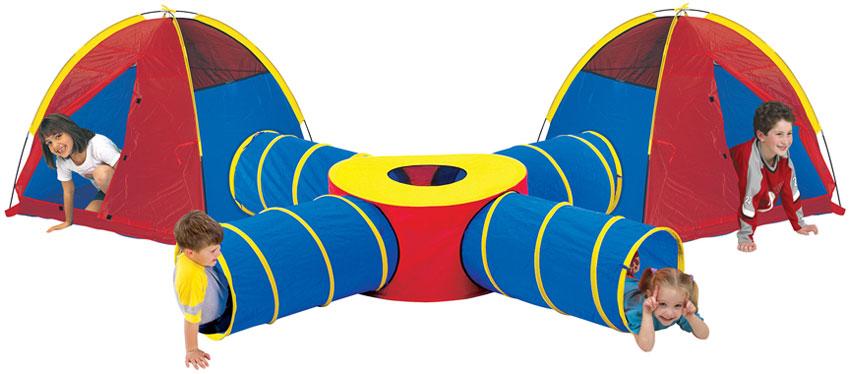Kids’ play tunnels provide more than just entertainment; they offer a unique social and emotional development opportunity.
These engaging structures foster connections among children, promote cooperation, and support the development of essential social and emotional skills. This article will explore how kids’ play tunnels contribute to social and emotional growth, nurturing empathy, communication, and self-expression.
Join us as we delve into the world of kids play tunnel and discover their valuable role in building connections and fostering healthy social and emotional development.
Encouraging Cooperative Play and Collaboration
Kids play in tunnels to create an environment that encourages cooperative play among children.
Within the tunnel, children collaborate to navigate through its twists and turns, overcoming obstacles and solving problems.
This collaborative play fosters teamwork, communication, and sharing skills as children learn to coordinate their movements, communicate their intentions, and support one another in reaching their common goal of exploring the tunnel.
Nurturing Empathy and Emotional Intelligence
Kids’ play tunnels allow children to understand and empathize with others. Children can step into different roles and perspectives through imaginative play within the tunnel, fostering perspective-taking and emotional understanding.
This experience nurtures empathy and emotional intelligence. They develop greater compassion and empathy in their interactions within and outside the tunnel.
Supporting Communication and Language Development
Kids’ play tunnels promote communication and language development as children engage in conversations, negotiation, and storytelling while playing in the tunnel.
They practice turn-taking, learn to express their ideas and thoughts, and listen to others’ perspectives.
The tunnel becomes a space for vocabulary development, expressive language, and the practice of effective communication skills, fostering clear and meaningful interactions between children.
Encouraging Self-Expression and Confidence
Kids’ play tunnels provide a safe space for self-expression and creativity. Children can express their thoughts, ideas, and emotions within the tunnel.
The imaginative play that takes place allows them to explore their imagination and experiment with different roles and scenarios.
Engaging in play within the tunnel environment boosts children’s confidence and self-esteem, as they feel empowered to express themselves freely and engage in activities that reflect their interests and unique personalities.
Fostering Problem-Solving and Conflict Resolution
Kids’ play tunnels offer opportunities for problem-solving and conflict resolution. As children navigate through the tunnel, they encounter challenges and obstacles that require thinking critically and finding solutions.
They learn to negotiate, compromise, and work together to overcome difficulties, developing essential problem-solving and conflict-resolution skills.
The tunnel environment becomes a space for children to practice these skills in a supportive and guided manner, preparing them for similar situations in their daily lives.
Cultivating Social Skills and Building Relationships
Kids’ play tunnels provide a platform for developing social skills and building relationships. Within the tunnel, children learn to take turns, share, and cooperate with others.
They develop important social skills such as active listening and empathy. With this, they start having respect for other’s ideas and perspectives. Play in the tunnel fosters the formation of friendships, encourages inclusivity, and cultivates positive social interactions.
The tunnel becomes a space where children can connect, build relationships, and learn the importance of collaboration and meaningful connections.
Conclusion:
Kids’ play tunnels catalyze social and emotional development. It provides a space for cooperative play and empathy. With this, much-needed communication and self-expression also build up. The problem-solving and relationship-building also enhance.
By recognizing the valuable role of play tunnels in supporting social and emotional growth, parents, educators, and caregivers can create environments that foster healthy connections and emotional well-being.
Let the kid’s play tunnel be a conduit for building connections, nurturing empathy, and promoting the development of vital social and emotional skills that will benefit children throughout their lives.
By encouraging children to engage in play within these tunnels, we empower them to navigate social interactions, understand emotions, communicate effectively, and cultivate meaningful relationships.


